Learning doesn’t stop when you receive your high school diploma, college degree, or retirement letter. Learning is a lifelong pursuit that can bring immense joy and numerous benefits to older adults, such as opening up new worlds, strengthening connections, and enriching life.
In many senior living communities, experiences and learning opportunities are catered to older adults’ varied interests and passions. From painting to gardening, these communities provide vibrant environments where older adults can quench their thirst for knowledge and personal growth.
The Benefits of Long Term Learning for Seniors
The benefits of lifelong learning include psychological wellbeing and health.
Mental & Emotional Well-Being
Lifelong learning fosters mental stimulation, enhancing older adults’ mental and emotional well-being. Engaging in activities such as reading, attending lectures, or learning new skills can boost self-esteem and provide a sense of accomplishment. These positive emotional experiences help older adults feel more empowered and resilient against life’s challenges.
Furthermore, learning new things can be incredibly enjoyable and add something different to their daily routines. Pursuing hobbies like painting, crafting, or gardening not only adds variety to life but also creates opportunities for older adults to express themselves creatively, fostering an overall sense of happiness and fulfillment.
Social Engagement & Community Building
Participating in educational activities provides an excellent platform for social interaction. Whether it’s a book club, a history class, or a dance lesson, these activities bring older adults together, promoting camaraderie and reducing feelings of loneliness. Building new friendships and maintaining social connections are crucial for emotional health, contributing to a more vibrant and connected life.
Cognitive Health & Reducing the Risk of Dementia
Engaging in lifelong learning can have a profound impact on cognitive health. Mental stimulation through learning can help maintain brain function and even slow the progression of cognitive decline. Activities that challenge the brain, such as puzzles, learning new languages, or playing musical instruments, can create new neural pathways and improve memory retention.
Personal Fulfillment & Empowerment
Lifelong learning encourages personal growth and mastery. For many older adults, this phase of life is an opportunity to explore passions and interests they may not have had time for earlier. Whether taking up photography, writing a memoir, or studying a new subject, learning empowers them to pursue their dreams and aspirations.
This sense of personal fulfillment is deeply empowering, fostering a positive outlook on life. Older adults who engage in lifelong learning often are motivated and capable of achieving their goals. This newfound sense of purpose can lead to a more satisfying and enriched life.
Encouraging & Facilitating Long-Term Learning for Seniors
Access to affordable or free educational resources is vital in encouraging lifelong learning for older adults. Local libraries, community centers, and online platforms often offer a wide range of free courses, workshops, and learning materials tailored to their interests and needs. Encouraging older adults to explore these resources can open up new avenues for learning without financial constraints.
Adequate physical and mental health support is also crucial for facilitating learning journeys. Regular exercise, a balanced diet, and mental health care can enhance overall well-being, making older adults more able and motivated to engage in educational activities.
Providing technology training and access can empower older adults to take advantage of digital learning resources. Offering workshops or tutorials on using computers, tablets, and smartphones can help them become more comfortable with technology and explore online educational platforms.
Role of Communities & Family Involvement
Community and family involvement can play a significant role in encouraging older adults to pursue lifelong learning. Family members and caregivers can support them by helping them identify learning opportunities, providing transportation, or simply offering encouragement.
Engaging the broader community in promoting lifelong learning can also create a more supportive environment for older adults. Community centers, local organizations, and senior living communities can collaborate to host educational events, create mentorship programs, and celebrate the achievements of senior learners.
Role of Senior Communities in Long Term Learning
Senior living communities offer learning programs, fitness programs, nutritious meal plans, and mental health services to support residents’ physical and mental health. By prioritizing health and wellness, older adults can better enjoy and benefit from lifelong learning opportunities.
Resident Learning Top of Mind
Lifelong learning offers many benefits for older adults, from enhancing mental and emotional well-being to fostering social connections and cognitive health. By overcoming challenges and implementing practical strategies, older adults can continue to learn, grow, and thrive throughout their lives.
Senior living communities can provide tailored programs, accessible resources, and a supportive environment to help older adults pursue their passions and achieve personal fulfillment. Schedule a tour with MerryWood on Park to explore our community’s numerous opportunities for learning and how we create a culture of continuous growth and enrichment for older adults.









